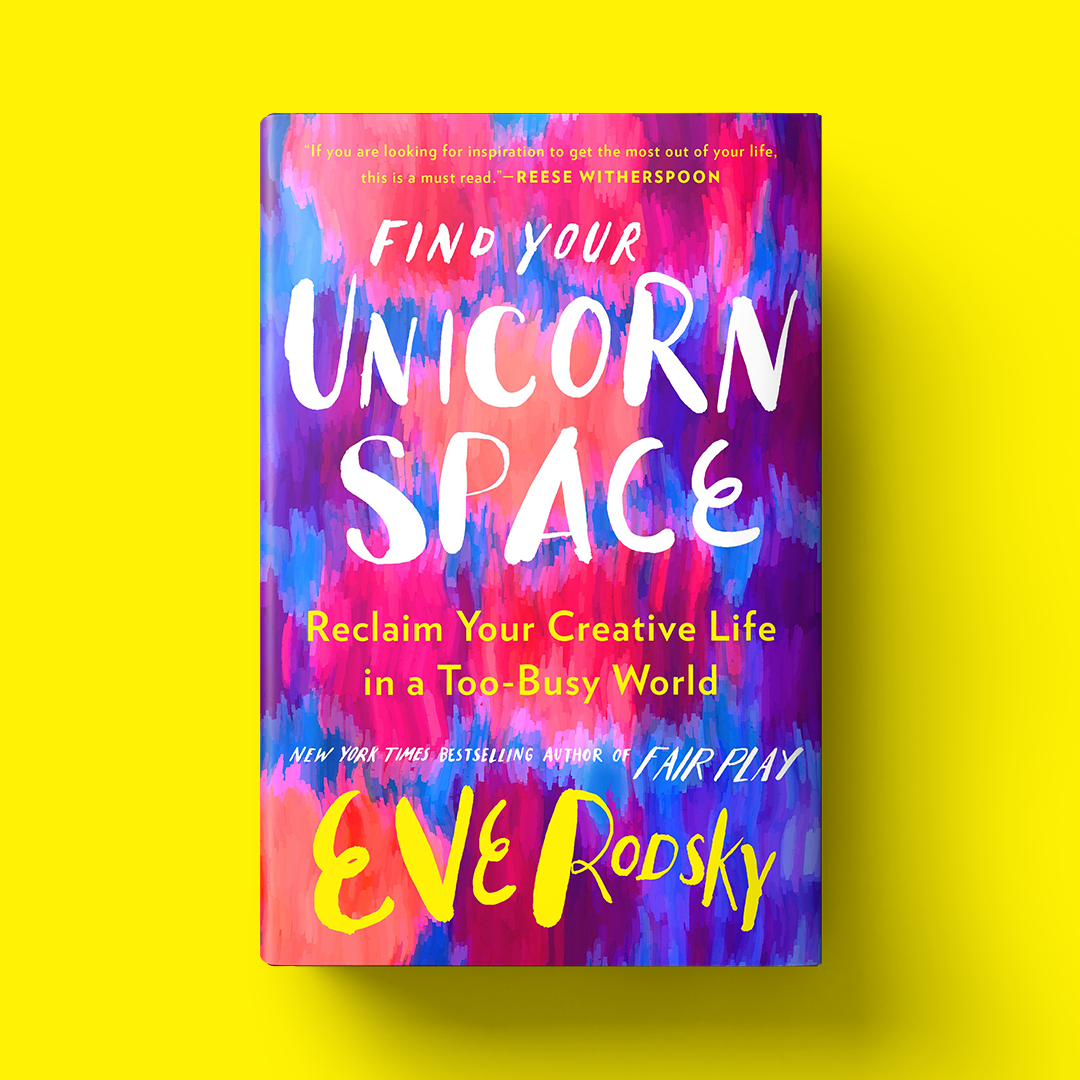EVE RODKSY ON THE MAGIC OF FAIR PLAY AND FINDING YOUR UNICORN SPACE
Eve Rodsky is working to change society one partnership at a time by coming up with a new 21st-century solution to an age-old problem: women shouldering 2/3 or more of the unpaid domestic work and childcare for their homes and families.
How did you come to start working on Fair Play, what was the impetus for the book? Were you aware that unpaid labor was one of the key barriers to gender equality when you started it?
I grew up in a single-mom household where, early on, I helped my mother manage eviction notices and late utility bills. I vowed that when I grew up, I would have an equal partner in life . . . and I did! I married that partner, and we were killing it together in business and life. Cut to two kids later and I find myself sobbing on the side of the road because of a text my husband sent me: “I’m surprised you didn’t get blueberries.” As I sat in my car, I thought to myself: When did I become the default for every single household and childcare task . . . including apparently being the fulfiller of my husband’s smoothie needs? I knew something had to change.
I started my journey into the “gendered division of labor” by reading every book and article I could get my hands on. I was aware that women shoulder about two-thirds of the work required to run a home and raise a family, but I wasn’t sure why. And while a lot of people were talking about the problem, none of them provided a solution. I soon realized that my expertise in family mediation, law, and organizational management could be applied to this problem—to create a system to promote sustainable change in our homes.
Even though women are liberated, to the extent that we can participate in the workforce, why is it so hard to break down invisible stereotypes that see women taking on the responsibilities of home life, even if they have a career?
Early on in my research, I came across an article titled “Invisible Work,” written in 1987 by sociologist Arlene Kaplan Daniels. In it, she argues that women’s unpaid “invisible” work in the home is often not seen as “work” at all and is significantly devalued. The article had a real impact on me and informed my initial quest—which was to make the invisible domestic tasks I did visible to my husband. My thinking was that it is impossible to value what’s invisible and I believed visibility would equal value.
As an approach, Fair Play is a personal choice and requires active engagement in a partnership, what role does the world outside play in countering the status quo?
1. FAIR PLAY: Alleviating the burden of the mental load for women in the home—based on what’s fair for your household.
2. FAIR PAY: All time is created equal, so we must have equal pay for equal work. Period.
3. FAIR DAY: Empowering companies to give their employees predictable-flexible work schedules, universal childcare, and time choice for BOTH parents.
Your second book is Find Your Unicorn Space, can you tell us a little more about the concept?
Unicorn Space, as I define it, is time you create to reclaim, or discover and nurture, the natural gifts and interests that make you uniquely you and share them with the world. For many of us, and women specifically, when a teeth cleaning feels like an indulgence, the idea of carving out Unicorn Space seems like a fantasy… and it will remain the stuff of fairytales until you and your partner are able to rebalance the workload between you.
Once you put a new system in place that optimizes efficiency and frees up some of your time, you and your partner must both assert your right to Unicorn Space without asking for permission or feeling guilty because it is essential to your ongoing sense of self, the health of your partnership, and your ability to convey what a full life looks like to your family, friends, and community. Unicorn Space will give your life purpose beyond being a parent, a partner and/or a professional.
We are clearly far from being on an even playing field; the pandemic brought these issues to the forefront with unprecedented home care demands and the corollary ‘femme recession’, as women dropped out of the workforce to take care of family. What makes you hopeful that we will get there?
The pandemic put this issue at the forefront of people’s lives. Our society runs on the unpaid labor of women, and it is not sustainable. My hope is that on the other side of the pandemic we refuse to go backward. We learn from what happened to women and put systems and policies in place to support them going forward.
Image Credit: @tayloredlivingmagazine




